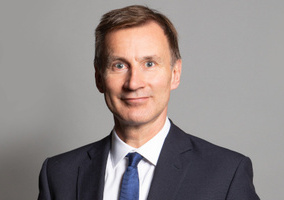Charity sector bodies have responded to the Office for National Statistics (ONS) announcement today that the UK officially entered recession at the end of last year.
The ONS estimated that the country’s gross domestic product (GDP) fell by 0.3% in the last quarter of 2023 (October to December) following an unrevised fall of 0.1% in the previous three months.
This is the first official recession recording in the UK since the first half of 2020 when the Covid-19 pandemic led to successive quarterly declines in GDP.
Meanwhile, the ONS announced earlier this week that inflation remained at 4% in January this year, the same as the previous month.
Potential chilling effect on donors
Membership body ACEVO said today’s announcement was “a huge concern for our sector, but will come as no surprise”.
“This is the context in which civil society has been operating for over two years,” said chief executive Jane Ide.
“Continued economic pressures mean changes in donor behaviour, increased operational costs and the cutting back of staff.
“Since the Covid-19 pandemic and the ongoing cost-of-living crisis, a substantial number of households, especially those in the lower-income bracket, are cutting back on spending and turning to charities and voluntary organisations for help.”
Dan Corry, chief executive of NPC and former Treasury adviser, said: “These new stats showing not only that we are in recession but that we have had seven quarters of falling GDP per head simply confirm what charities already know – there’s a continuing squeeze on incomes which is driving increased demand for charities.
“With a crisis in local government finances already looming and indications the chancellor might further cut public spending in the budget, the sector will be nervously watching for any signs of this recession having a chilling effect on key donors and funders."
Charities ‘reaching the limit of what they can survive’
Responding to today’s announcement, Charity Finance Group said charities would be “concerned about the potential length and depth of this recession”.
“Charitable organisations will always try to support those in need, with innovation, creativity and perseverance but the pressure charities are under is prolonged and intense,” said Clare Mills, director of policy and communications.
“I am concerned that we will see more organisations reaching the limit of what they can survive, with more closures and insolvencies over the coming months.
“This will mean further loss and hardship for the people and communities those charities serve.
“UK GDP has been oscillating around 0% growth for some months, so today’s announcement that the UK economy is now formally in recession is no surprise.
“The impact of monetary policy measures including higher interest rates is taking time to be felt across the economy and has contributed to the drop in inflation but recession was always a risk.”
Philippa Cornish, head of client experience at the Charities Aid Foundation said: “The ONS announced today that the UK is officially in recession, but charities have been facing economic challenges for some time from the cost-of-living crisis and higher inflation.
“With households also squeezed, charities are dealing with declining income from donations and grants, having to meet inflated costs, while more people rely on their services.
“Since 2022, our regular research with charities has found that more than half say they are worried about surviving the next six months.”
Speaking to the Newspage news agency, Jennie Prewett, founder of Bristol-based charity Incredible Kids, said: “Small charities like ours are weaving our way through extremely challenging times, as this latest GDP data shows.
“The funding landscape is becoming increasingly challenging, with many regular supporters closing their doors, and others facing an overwhelming number of applications.”











